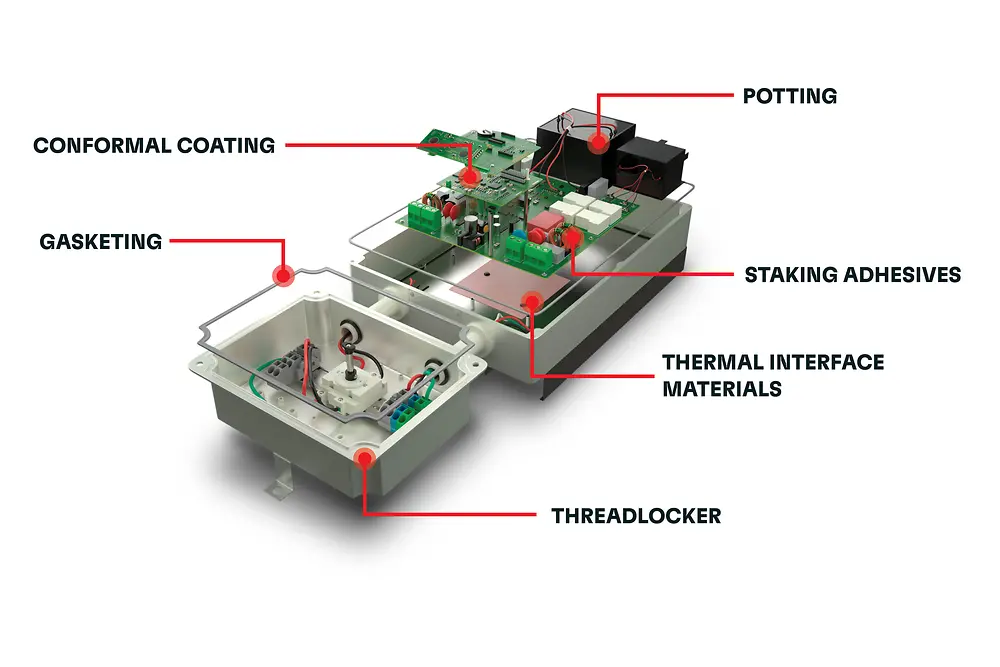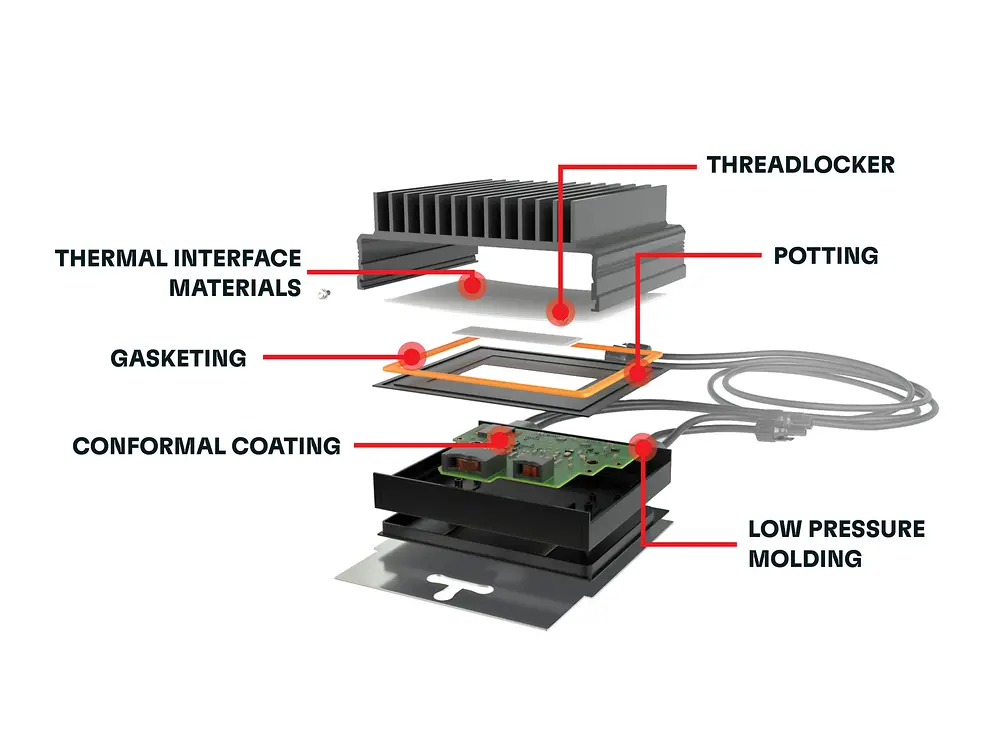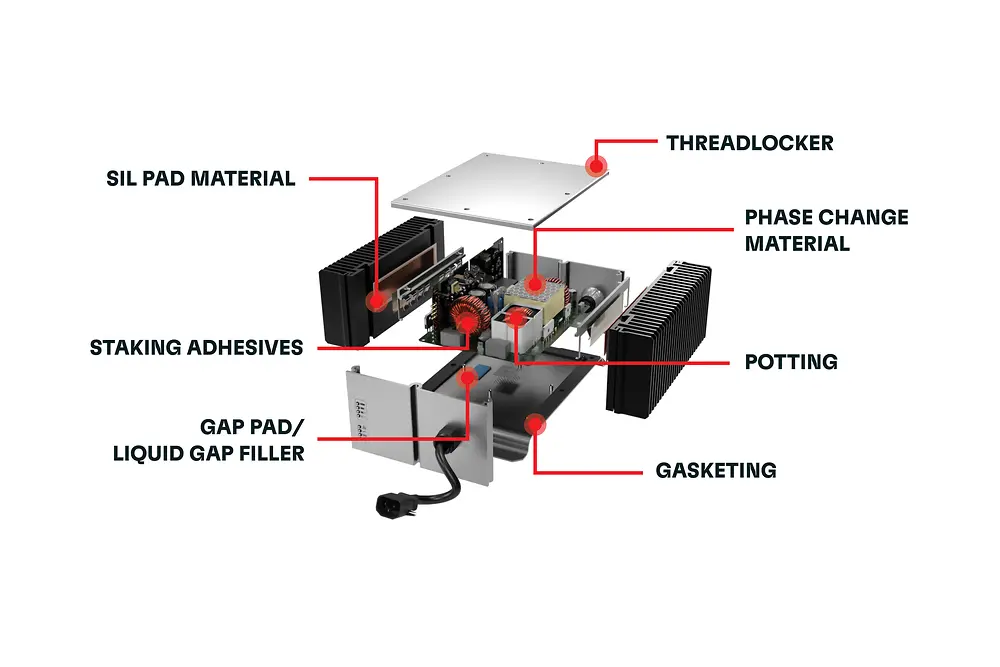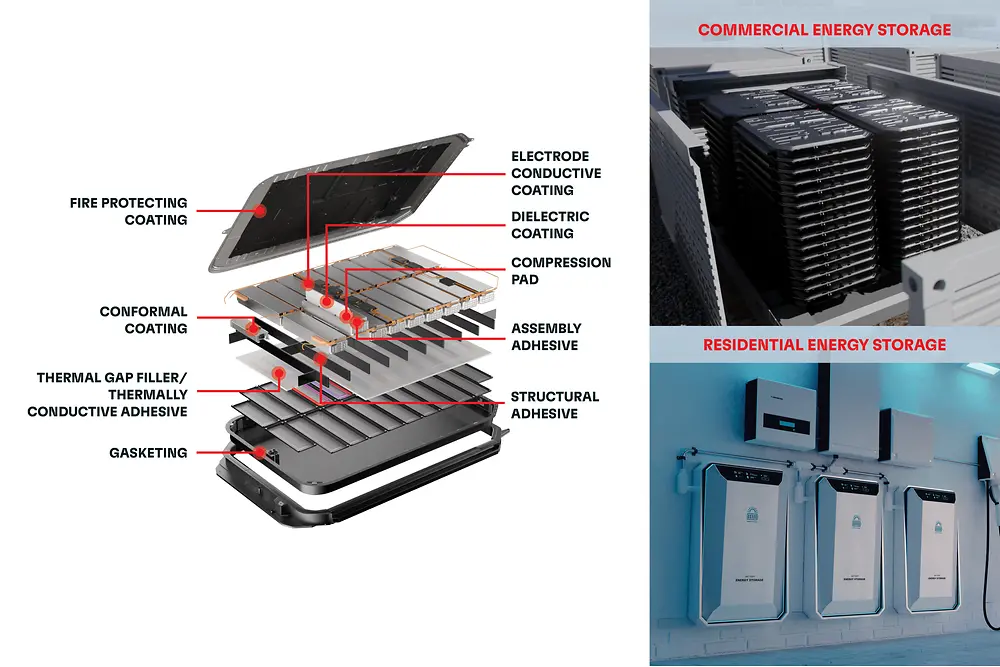Protection and thermal management solutions are helping address increasingly demanding requirements of power conversion and energy storage systems
Alternative energy adoption continues to enjoy steady growth globally. According to some analysts, solar system installations may see more than a 50% increase this year, topping out at over 350 GW by the end of 2023. Henkel is a key supplier to this sector, and as commercial and residential installations expand alongside increased design complexity and reliability expectations, the requirement for the company’s protective and thermal management materials is even more profound. Henkel’s proven portfolio of products for alternative energy applications addresses many of the demands associated with higher power density electronics and remote installation environments.
“Protecting electronics from external contaminants and controlling high operational temperatures to enhance function are fundamental objectives across applications,” comments Justin Kolbe, Henkel Director of Market Strategy for Power and Industrial Automation. “Power conversion and energy storage for alternative energy systems present some unique challenges, however, given their high-power designs and reliability expectations despite exposure to outdoor environments.”
For example, inverters, which convert direct current to alternating current, were early adopters of high energy density wide bandgap gallium nitride (GaN) semiconductor devices. This has dramatically improved efficiency, and in some large field, building, and industrial installations, central inverters boast power capacity as high as 1500 Volts (DC). While this development enables economies of scale with the ability to process more incoming current, the compact footprints, high voltages, and increased operational temperatures also present challenges from a thermal management perspective. Similarly, the energy density of current-generation Li-I battery storage systems that house converted AC energy until use has progressed well beyond early designs. Add to this the life expectancy of these systems – as long as 25 to 30 years, in some cases – and the importance of operational robustness and electronic protection is accentuated.
Henkel has developed a portfolio of materials to enable new alternative energy systems and address varied designs – from residential to large-scale deployments. The company’s formulations include:
Thermal Management Solutions – With numerous designs, processing preferences, and performance objectives, thermal management material options for energy systems must be equally diverse. As pioneer in thermal interface materials (TIMs), Henkel’s expansive line of gap pads, one- and two-part liquid gap fillers, thin bond line phase change TIMs, insulating films, and conductive adhesives deliver exceptional application flexibility with proven results.
Electronic Protection Materials – PCBs and complete device assemblies must be protected against voltage leakage, moisture, chemical contaminants, and extreme conditions. Among Henkel’s protection materials portfolio are conformal coatings and potting encapsulants that provide ruggedness and dependable function. Alternative energy power conversion and storage systems can experience broad temperature swings and humidity levels; defending against these conditions is mandatory.
Enclosure Gasketing and Sealing – Fortifying outdoor systems with barriers against air, dust, water, and other contaminants is vital. Without this protection, alternative energy technologies risk operational interference or failure. Henkel sealant and gasketing materials provide excellent ingress protection (IP) protection while allowing service access when required.
As a holistic approach, using these materials enables alternative energy innovation, cost reduction, and deployment expansion, Kolbe explains. “In addition to meeting environmental objectives, much of the growth and increased adoption of alternative energy is due to the leveling of the value-to-cost ratio,” he says. “Without question, a lot of this progress has been made possible through materials that help shape designs, improve efficiency and reliability, and extend technology lifetimes.”
To find out more about Henkel’s thermal and protecting materials for power conversion and energy storage, visit our website.












